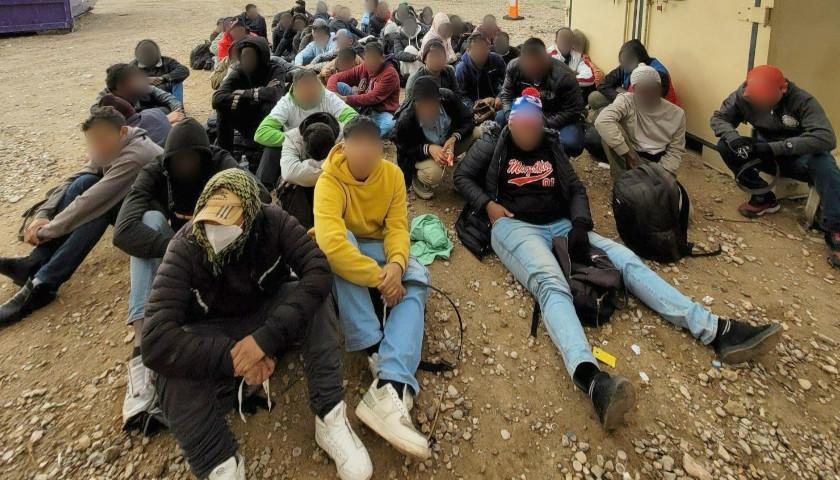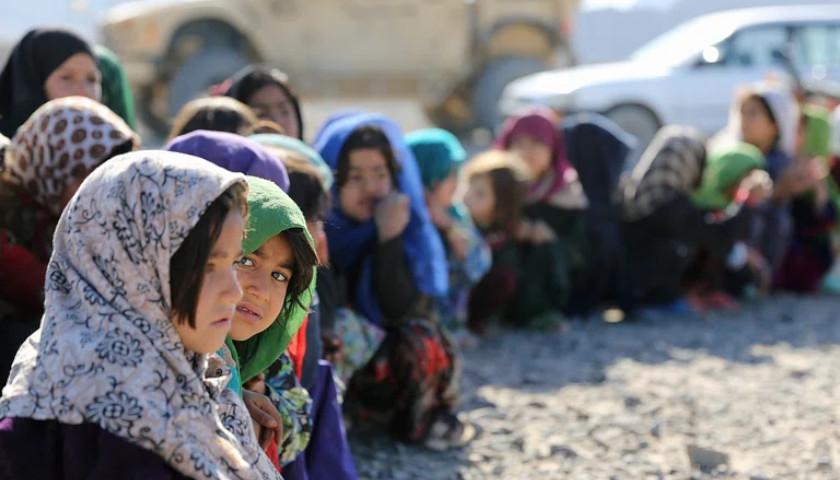Senator Bob Corker (R-TN) has plenty of evidence to support President Trump’s presidential determination to reduce the refugee ceiling in FY 2018 to 45,000, but, so far, the soon-to-retire senator has been silent on that matter since that news broke late last month.
In April, however, PJ Media reported, “Senate Foreign Relations Committee Chairman Bob Corker (R-Tenn.) said he hopes the Trump administration begins to ‘move back to a regular process’ and ‘normalize’ the admission of refugees into the United States.”
Corker should know the pitfalls of “normalizing” the admissions of refugees to higher levels of the Obama administration. He was a sitting member of the Senate Foreign Relations Committee when it convened a hearing in 2010, to address the failures of the U.S. refugee resettlement program and he learned a great deal about the serious problems of the program back then.
The committee’s report, Abandoned Upon Arrival: Implications for Refugees and Local Communities Burdened by a U.S. Resettlement System That is Not Working, offers ample, if not overwhelming justification for Corker, now chairman of the committee, to support President Trump’s responsible FY 2018 cap for U.S refugee admissions at 45,000 annually, significantly lower than the 85,000 admissions in FY 2016, the last full year of the Obama administration, and about 17 percent lower than the about 53,000 refugee admissions in the recently ended FY 2017.
The committee’s report highlights the continuing problem that federal appropriations for domestic refugee support, are not commensurate with the number of refugees admitted to the U.S. Instead, Congress has shifted those costs to state and local governments, in effect, forcing the use of state revenues specifically, to meet the needs of refugees.
The problem of shrinking federal appropriations to support refugee admissions and the subsequent passing of costs onto state and local governments, was documented as early as 1990 by the U.S. General Accounting Office (GAO):
Between fiscal years 1985 and 1989, however, the amounts appropriated have declined, shifting the costs of refugee resettlement to state and local governments…
With reductions in federal refugee assistance, costs for cash and medical assistance have shifted to state and local governments. Available data indicate that states resettling most of the refugees incur millions of dollars in transferred costs – the most recent estimate is $85 million for fiscal year 1990. However, these costs represent a very small percentage of total state expenditures for cash assistance.
Three years later, the GAO again documented the failure of Congress to adequately fund its program to provide for the increased level of refugee admissions:
Between 1985 and 1992, federal assistance for refugee resettlement decreased and the time period for cash and medical assistance was reduced, while the number of refugees admitted increased.
Testimony during the 2010 hearing confirmed that refugees place significant demands for health, education and other social services on state and local governments:
…refugee policies and procedures are determined at the Federal level, but the burdens of addressing the unique needs of refugees after they arrive are passed on to local communities, often without their consent. Some resettled refugees are illiterate in their native language or suffer from severe physical or mental ailments and many are ill-equipped to secure employment in an increasingly competitive job market. The financial and mentoring assistance required to help this population achieve self-sufficiency exceeds the resources currently provided by the Federal Government.
The Superintendent for Fort Wayne, Indiana Community Schools confirmed that the cost of educating refugee students in her district meant that funds were “regularly diverted from other programs.”
The Fort Wayne-Allen County Commissioner of Health told the committee that “[i]ncreasingly the cost of [HIV/AIDS] tests are being dropped on the laps of local and state governments” as well as the expensive life-long treatment for the high incidence of hepatitis B she accidentally discovered among the resettled Burmese “…another significant cost the local community will be forced to bear.”
The committee’s report also noted that:
Public health officials also have raised concerns that some refugee populations, who have been found to suffer from elevated rates of latent tuberculosis (TB), are not undergoing adequate prearrival screening or properly monitoring their own treatment. Consequently, they face a higher risk of developing active TB, which is contagious and a potential health threat to the general population.
More to the point, the Health Commissioner’s testimony confirmed:
“…that almost half of Burmese refugees screened have latent tuberculosis (TB). According to Dr. McMahan, there is a 10- to 15-percent lifetime risk of developing active TB within this group, a disease which is contagious, and one’s susceptibility to developing active TB is increased by malnutrition and a weak immune system–each being prevalent among refugees. On average, as noted by the World Health Organization, each person with active TB infects 10-15 people before antibiotics, and isolation procedures render them noncontagious. Dr. McMahan contended that if 50 percent of the roughly 800 refugees resettled in 2008 are assumed to have latent TB, the city could have as many as 100 to 200 new cases of active TB within the Burmese population alone. In the absence of effective monitoring and treatment, this could present a significant threat to public health.
Neither HIV nor the presence of latent TB bars a refugee’s admission to the U.S. Latent TB infection rates, however, are high among resettled refugees. Extensive reporting over the past year on this issue specifically has exposed latent TB rates of 27% in Tennessee, 35% in Vermont, 26% in Indiana, 22% in Minnesota, 20% in Florida, 18% in Arizona, just to name a few.
The sharp increase in Minnesota’s active TB cases was reported being tied to refugee resettlement. In 2012, the CDC reported that TB “in foreign-born persons increased to 63% of the national case total,” a percentage that has risen steadily since 1993.
In Tennessee, between 2010 and 2013, two cases of multi-drug resistant TB were discovered.
The Star reported in June how federal resettlement contractors had failed to provide contracted services to refugees they helped place in Tennessee.
Governor Haslam refused to challenge the federal government’s operation of resettling refugees in Tennessee. It was left to the Tennessee General Assembly to sue the federal government to end the program in the Volunteer State on Tenth Amendment grounds. That suit is currently being litigated.
Despite the economic costs, health risks, and security risks posed by refugees to Tennesseans, Senator Corker remains silent on the issue, refusing, as is his pattern, to support President Trump’s agenda once again.









It’s too bad Corker doesn’t care as much for his Tennessee constituents, their health and lives as he does for his chamber of commerce establishment buddies and the democrats in the D.C. swamp.
Wolf Woman, You’ve got that right. Smilin’ Bob does not represent the average Joe and Jane Citizen of Tennessee. He was lame long before be became a lame duck.
He once tore into Ted Cruz right on the Senate floor. I was astounded at this travesty of protocol and rudeness. He’s not just crooked and greedy, he’s petty and mean. Good riddance!